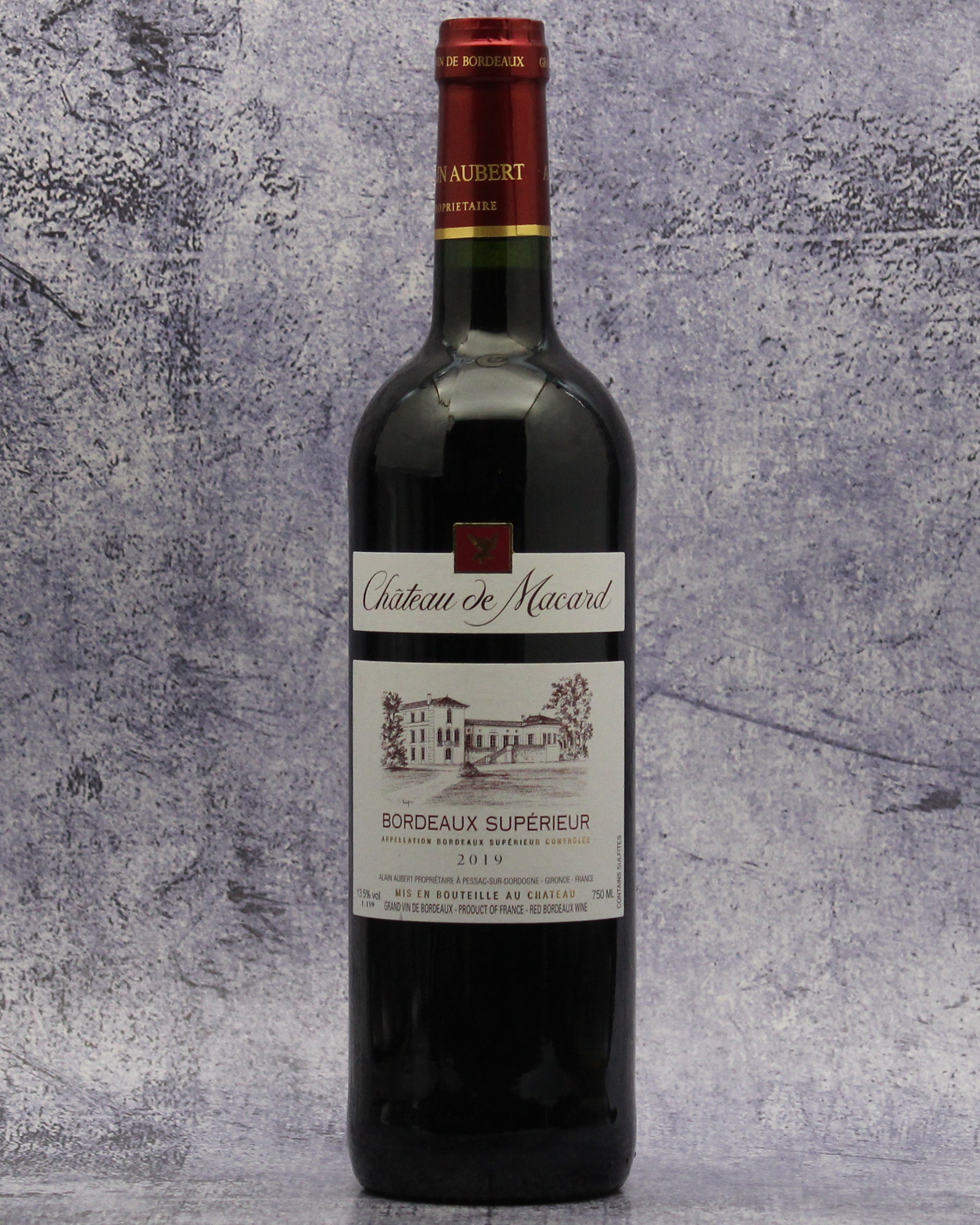Description
From: Pessac-sur-Dordogne, Bordeaux, France
Varietal: Cabernet Franc, Merlot, Cabernet Franc
Taste: This wine opens with a rich bouquet of ripe dark fruits—blackcurrants, juicy plums, and black cherries—intertwined with floral hints of violets and dried rose petals. Beneath the fruit, earthy complexity arises with notes of graphite, crushed gravel, and forest floor. Subtle oak-driven aromas of vanilla bean, toasted cedar, and cocoa blend with warm spices like star anise, black pepper, and clove.
On the palate, a lush core of blackberry compote, cassis, and blueberry preserves seamlessly melds with firm yet velvety tannins, creating a polished texture. Vibrant acidity lifts the mid-palate, enhancing the wine’s freshness and structure. Nuances of smoked vanilla and savory earthiness emerge, leading to a long, persistent finish layered with dark fruit and spice.
Pairing: This best pairs with dishes that complement rich fruit, structured tannins, and balanced acidity. Classic pairings include grilled or roasted meats like lamb, beef, or duck, which harmonize with the wine’s depth and spice. Earthy flavors, such as mushrooms, truffle-infused dishes, and aged cheeses like Comté or Gruyère, enhance its savory undertones. The wine's acidity makes it a great match for tomato-based dishes like beef ragù or roasted eggplant Parmesan. For a more casual pairing, charcuterie boards with cured meats and hard cheeses highlight its complexity.
Wine Notes: This red blend comprises 50% Cabernet Franc, 30% Merlot, 20% Cabernet Sauvignon. The vines flourish in dense clay, limestone, and gravel soils, with an average age of 40 years and a planting density of 5,000 per hectare.
About. Château de Macard is an estate located along the Dordogne River, just upstream from the famous Saint-Émilion region and south of the Côtes de Castillon in Bordeaux, France. The estate is part of the Aubert family's extensive portfolio of vineyards, a lineage cultivating vines in the Bordeaux region for several generations. The Aubert family is noted for its organic farming practices and for producing wines that reflect Bordeaux’s
The vineyards of Château de Macard are planted on soils rich in dense clay, limestone, and gravel, providing an ideal environment for grape cultivation. The estate spans several hectares, with vines averaging 40 years of age and a planting density of approximately 5,000 vines per hectare. This combination of mature vines and optimal planting density contributes to the concentration and complexity of the wines produced.
The Aubert family is deeply involved in Bordeaux's wine industry, managing several estates. Héloïse Aubert-Sénéchal, a member of the current generation, actively participates in the operations of various châteaux, including Château de Macard. In 2016, she founded Château Ascension, a 6-hectare estate in Saint-Christophe-des-Bardes, within the Saint-Émilion Grand Cru appellation. This property symbolizes her family's two-century-long presence in the Saint-Émilion vineyard. Furthermore, the Aubert family oversees a portfolio of estates named Domaines Alain Aubert, covering approximately 250 hectares of vineyards in the Bordeaux, Saint-Émilion, and Castillon la Bataille regions. These properties include Château German, Château Hyot, Château de Ribebon, Château de Macard, Château Haut-Gravet, Château Indépendance, and Château Apogée.
Château de Macard's philosophy centers on producing wines that reflect the unique characteristics of their terroir while maintaining a commitment to sustainable and organic farming practices. This approach ensures that the wines not only express the distinct flavors of their environment but are also produced in a manner that respects and preserves the land for future generations.
The estate's location along the Dordogne River provides a unique microclimate that influences the characteristics of the wines produced. The river's proximity helps moderate temperatures, reducing the risk of frost and providing a longer growing season. This allows the grapes to develop complex flavors and aromas, contributing to the depth and richness of the wines.
The estate emphasizes the health of its vineyards through careful viticulture, including aerating the soils to enhance their nourishment. In the winery, a philosophy of minimal intervention is maintained to allow the natural expression of the grapes. After a meticulous selection of harvested grapes, the limited production from each parcel permits isolation in separate vats according to origin and varietal. The musts undergo three weeks of fermentation, both alcoholic and malolactic, to soften the resulting wine. Vinification continues at controlled temperatures through several series of fermentations. Half of the wines are aged in oak barrels for 18 months, while the other half matures in stainless steel tanks.

